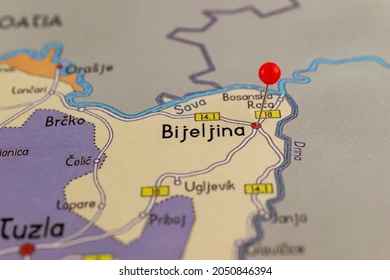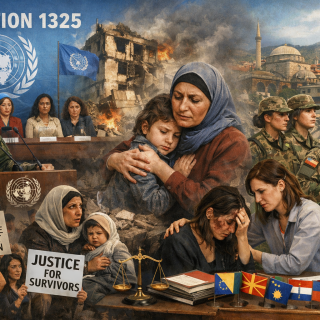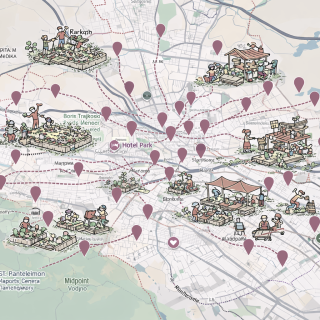As one of the nearest cities to Bosnia and Herzegovina’s border with Serbia, Bijeljina was the perfect test site for war plans and crimes that were about to engulf the rest of the country. Everything that was happening in and around Bijeljina in April 1992 was replicated throughout the Podrinje region over the ensuing months and years.
Everything started at the beginning of April of 1992, when members of paramilitary formations of Željko Ražnjatović Arkan entered Bijeljina. This was the beginning of killings, rapes, torture and looting that became part of the daily life. Some bodies of killed persons stayed in the streets for days. All this and many other things were captured by the US photographer Ron Haviv in his photos. In Bijeljina, there were also numerous detention camps for non-Serb population, where the Serb army tortured, abused and killed detainees.
Before the arrival of the high-ranking delegation of Bosnian and Herzegovinian authorities, led by Biljana Plavšić, the Serb authorities ordered the removal of bodies from the streets. Shortly after that, Biljana Plavšić proclaimed the liberation of Bijeljina and thanked Arkan for this act.
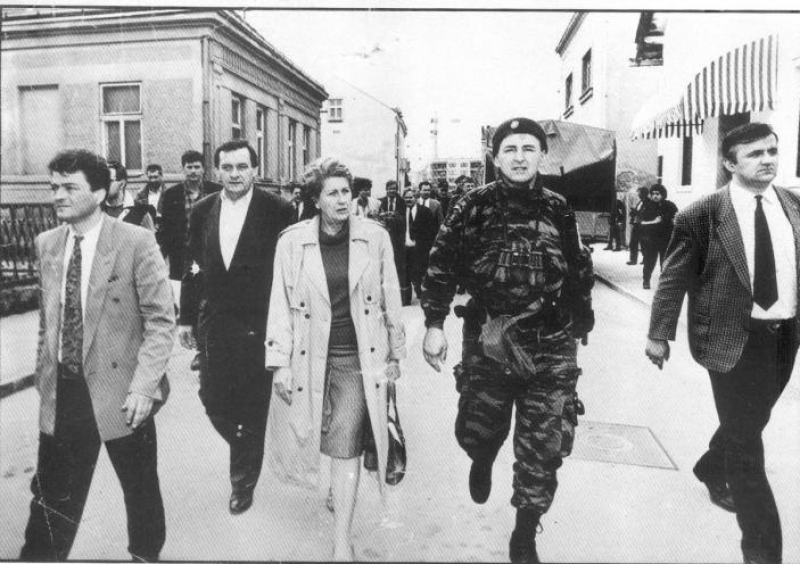
After the acquittal, the Appeals Chamber of the ICTY reinitiated the trial of Jovica Stanišić and Franko Simatović at the end of 2015 for aiding and abetting units that directly engaged in prosecutions, murders, deportations and inhumane treatment in cities throughout Croatia and Bosnia and Herzegovina, including also Bijeljina. They both plead not guilty, but the Appeals Chamber of the Mechanism dismissed the appeals of Stanišić and Simatović on May 31, 2023 and they were convicted to a 12-year prison sentence.

This judgment was extremely important, since it proved the type of war that Serbia was trying to downplay. However, the conviction of Jovica Stanišić as the Head of the State Security Service of the Ministry of Internal Affairs of the Republic of Serbia and Franko Simatović as an employee of the State Security Service, counters the narrative about the war in Bosnia and Herzegovina that Serbia has been spreading all these years. The positions they held back then sufficiently demonstrate their involvement in the war in the 1990s throughout Bosnia and Herzegovina and the ensuing responsibility of Serbia.
However, given the scope of suffering and inhumane treatment of non-Serb population in Bijeljina throughout the war, the number of convicts should be much higher. Prosecutor’s offices at all levels in Bosnia and Herzegovina are some of the least efficient public institutions, which also results in the lack of additional judgments, including also in case of war crimes committed in Bijeljina.
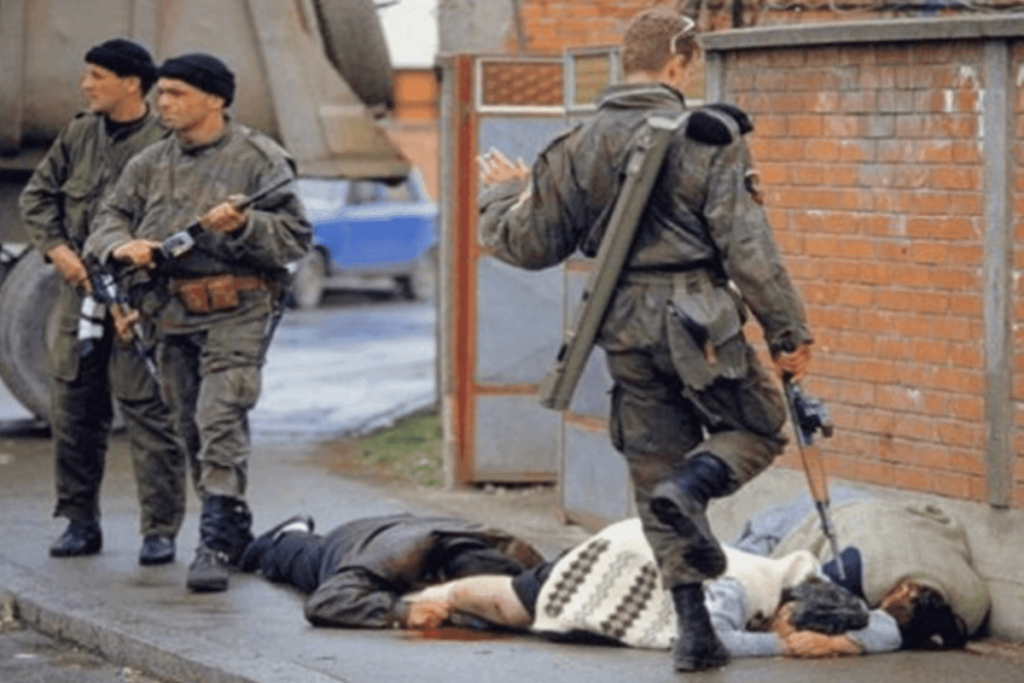
When we asked Jusuf Trbić, one of the writers of the portal Tačno.net, who actively focuses on the disclosure of war crimes committed in Bijeljina, what was his opinion about the work of the Prosecutor’s Office of Bosnia and Herzegovina, he said the following:
”What can I tell you. Almost no crime has been resolved in Bijeljina. A crime happened on April 1. It was committed by the Serbian paramilitary units. The judiciary of Serbia initiated the proceedings and they were then completed here. In case of all other cases completed in Bijeljina, the murderers were rewarded, and the victims were punished. It is obvious also in case of proceedings related to the detention camp Batkovići. It is incredible that in spite of numerous witnesses and tons of evidence, murderers and those that ordered the murders were acquitted, while the victims had to pay for costs, as if they had been to a hotel. It was a detention camp that more than 4000 persons ended up at, and more than 80 of them were killed.”
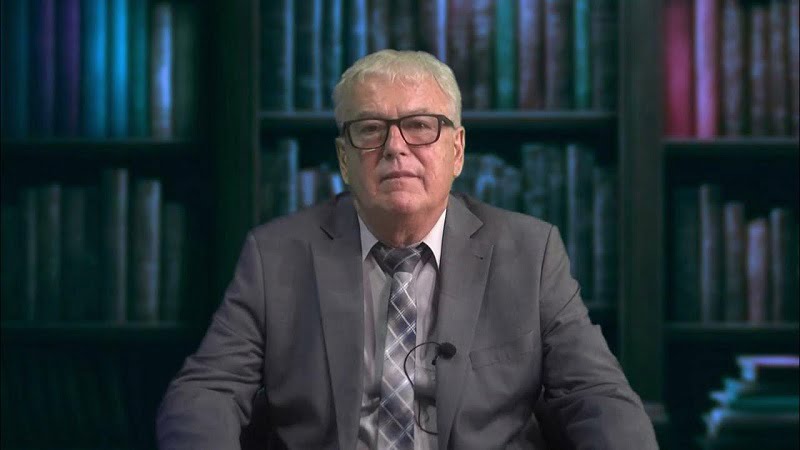
The impunity in case of war crimes committed throughout Bosnia and Herzegovina can be explained by the political system that obtained its final legitimisation after the war, although it was created during the war. Politicians representing the three ethnic groups in Bosnia and Herzegovina have been shaping the formal and informal coalitions for decades and pursuing their own interests as a result of this.
”We are victims of the ethnic and religious divisions between three parties interested in dividing Bosnia and Herzegovina. They are the ones helping one another to keep their seats, and most perpetrators, especially those that committed the gravest crimes, have links to persons in power, who help them remain unpunished. Persons who ordered crimes in Bijeljina are still around, except for those who died of natural causes”, says Jusuf Trbić.
In the city in which one of the squares was named after Dražo Mihajlović, today it is difficult to talk about the culture of remembrance, but there are some positive examples of coexistence and peacebuilding.
One of the organisations that contributed to peacebuilding by emphasizing the role of women in this process is Lara Foundation from Bijeljina. It was established in 1998 and has implemented lots of projects and initiatives that aim at changing the narrative from the 1990s.
”We managed to reaffirm the memory of the history of women of Bijeljina by showing this city’s multi-ethnic and multi-religious character. Also, we tried to preserve the memory of Rašida Čehajić, a woman who became victim of a horrible crime at the beginning of the war and we insisted that a street in Bijeljina be named after her”, points out the head of Lara Foundation, Radmila Žigić.
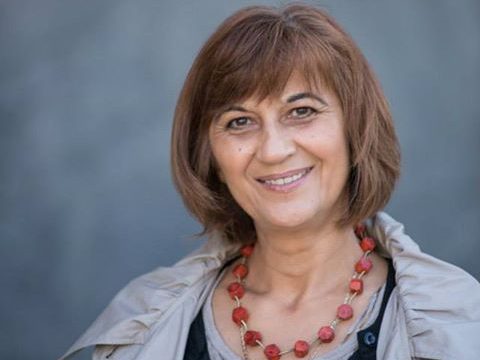
This foundation has worked with women who are victims of violence, smuggling and war since its establishment. As a result of its activities, it significantly contributed to the efforts to create a normal country.
Notwithstanding this, civil society organisations do not have the power or authority to take key steps to achieve this goal. This is a task of the competent institutions and representatives who are actually paid to do this as part of their job.
The text was written in cooperation with Tačno.net.
